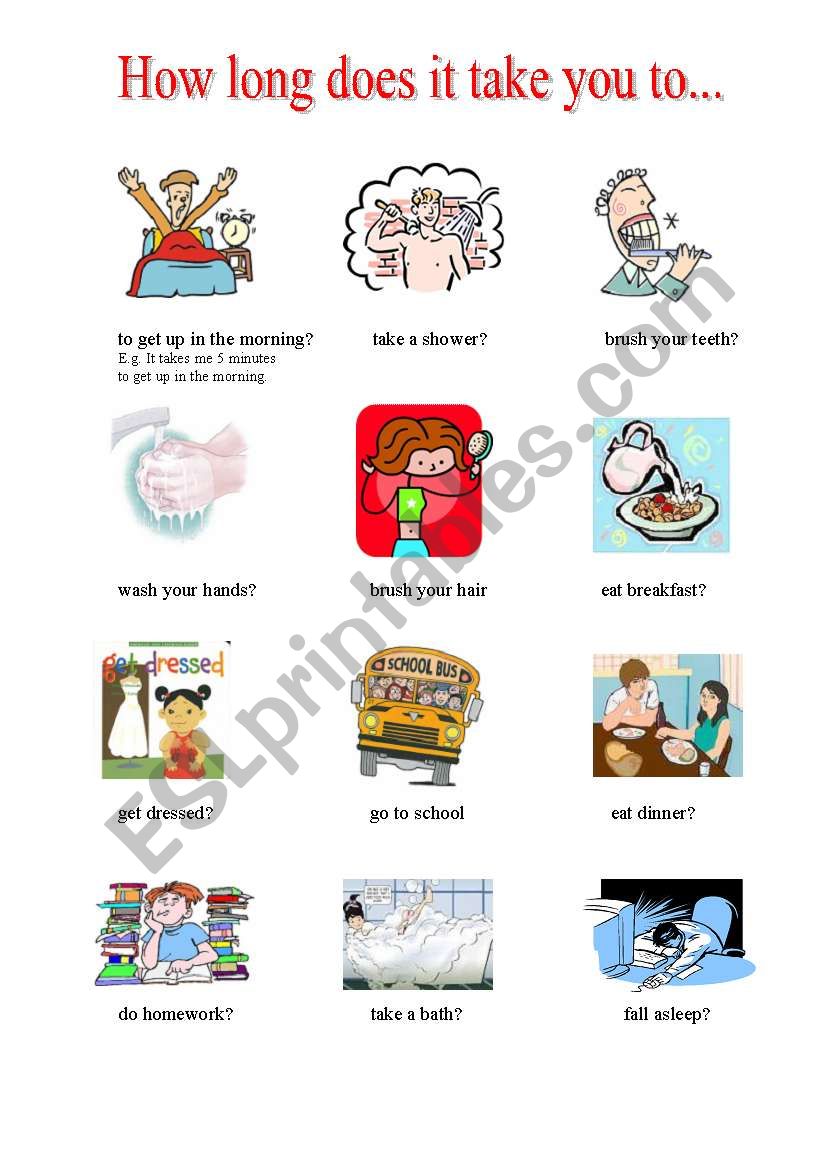In the bustling metropolis of New York City, where time is of the essence, I found myself grappling with a dilemma that plagues countless commuters every day: how long will it take me to get to work?

How Long Will It Take Me To Get To Work
My morning routine was a constant dance with the clock. I would nervously glance at my watch, calculating the minutes until I had to rush out the door. The journey to my office in Midtown Manhattan was unpredictable, a labyrinth of subway lines and crowded streets that seemed to stretch endlessly before me.
The Commuting Conundrum: Defining the Variables
The time it takes to commute to work is influenced by a myriad of factors, some within our control and others beyond our grasp. These variables can be broadly categorized into two groups: fixed and variable.
Fixed variables are immutable factors that influence commute time regardless of our actions. These include the distance between home and work, the mode of transportation used, and the time of day. Variable factors, on the other hand, are more fluid and can be adjusted to optimize our commuting experience. These include traffic conditions, delays on public transportation, and the availability of alternate routes.
Navigating the Commuting Maze
To effectively estimate our commute time, it is essential to understand the interplay between these variables and plan accordingly. Here are some key considerations:
- Distance: The distance between home and work is a significant determinant of commute time. Longer distances generally translate into longer commutes.
- Mode of transportation: The mode of transportation chosen can have a significant impact on commute time. Public transportation, while often convenient, can be subject to delays and overcrowding. Driving may offer more flexibility, but traffic conditions can be unpredictable.
- Time of day: Rush hour traffic can significantly increase commute times. By choosing to travel during off-peak hours or adjusting our work schedules, we can potentially reduce our commuting time.
- Traffic conditions: Traffic conditions can vary greatly depending on the time of day, weather conditions, and road closures. Real-time traffic updates can provide valuable information to help us adjust our routes and avoid delays.
- Public transportation delays: Delays on public transportation systems can be a major source of frustration for commuters. Planning for potential delays by leaving extra time or considering alternative routes can mitigate the impact of these disruptions.
- Alternate routes: Having knowledge of alternate routes can provide flexibility in case of unexpected delays or closures. Exploring different options and identifying shortcuts can potentially reduce commute time.
Expert Advice for Optimizing Your Commute
In addition to understanding the variables that affect commute time, there are several practical steps we can take to optimize our commuting experience:
- Use technology to your advantage: There are numerous apps and websites that provide real-time traffic updates, public transportation schedules, and estimated commute times. These tools can help us make informed decisions about our route and departure time.
- Be flexible and adaptable: Being willing to adjust our departure time, mode of transportation, or route can significantly reduce commute time. By considering alternate options and avoiding rush hour traffic, we can optimize our journey.
- Consider carpooling or public transportation: Carpooling can reduce individual commute times, while public transportation offers a convenient and often more environmentally friendly option.
- Take breaks and make the most of your commute: Commuting can be stressful, so it is important to take breaks and find ways to make the most of your time. Listen to podcasts, audiobooks, or music, or use the time to catch up on emails or reading.
Frequently Asked Questions (FAQs)
- Q: What is the average commute time in the United States?
A: According to the U.S. Census Bureau, the average commute time in the United States is approximately 27 minutes.
- Q: Which mode of transportation is the most efficient for commuting?
A: The efficiency of a mode of transportation depends on various factors, including distance, traffic conditions, and availability. In general, public transportation tends to be more efficient in densely populated areas, while driving may be more efficient in suburban or rural areas.
- Q: What are some tips for reducing commute time?
A: Some effective tips for reducing commute time include using technology to track traffic and public transportation schedules, being flexible with departure time and route, and considering carpooling or public transportation.
- Q: How can I make my commute more enjoyable?
A: To make your commute more enjoyable, you can listen to podcasts, audiobooks, or music, catch up on emails or reading, or simply take some time for relaxation and reflection.
Conclusion
Estimating how long it takes to get to work can be a complex task, influenced by a myriad of factors. By understanding the variables involved, adopting proactive strategies, and leveraging expert advice, we can optimize our commute and make the most of our time. Remember, the journey to work is not just about the destination but also about the experience along the way.
Are you interested in learning more about commuting and its impact on our lives? Let us know your thoughts and questions in the comments below.
How Long Will It Take Me To Get To Work

Image: jsmithmoore.com










